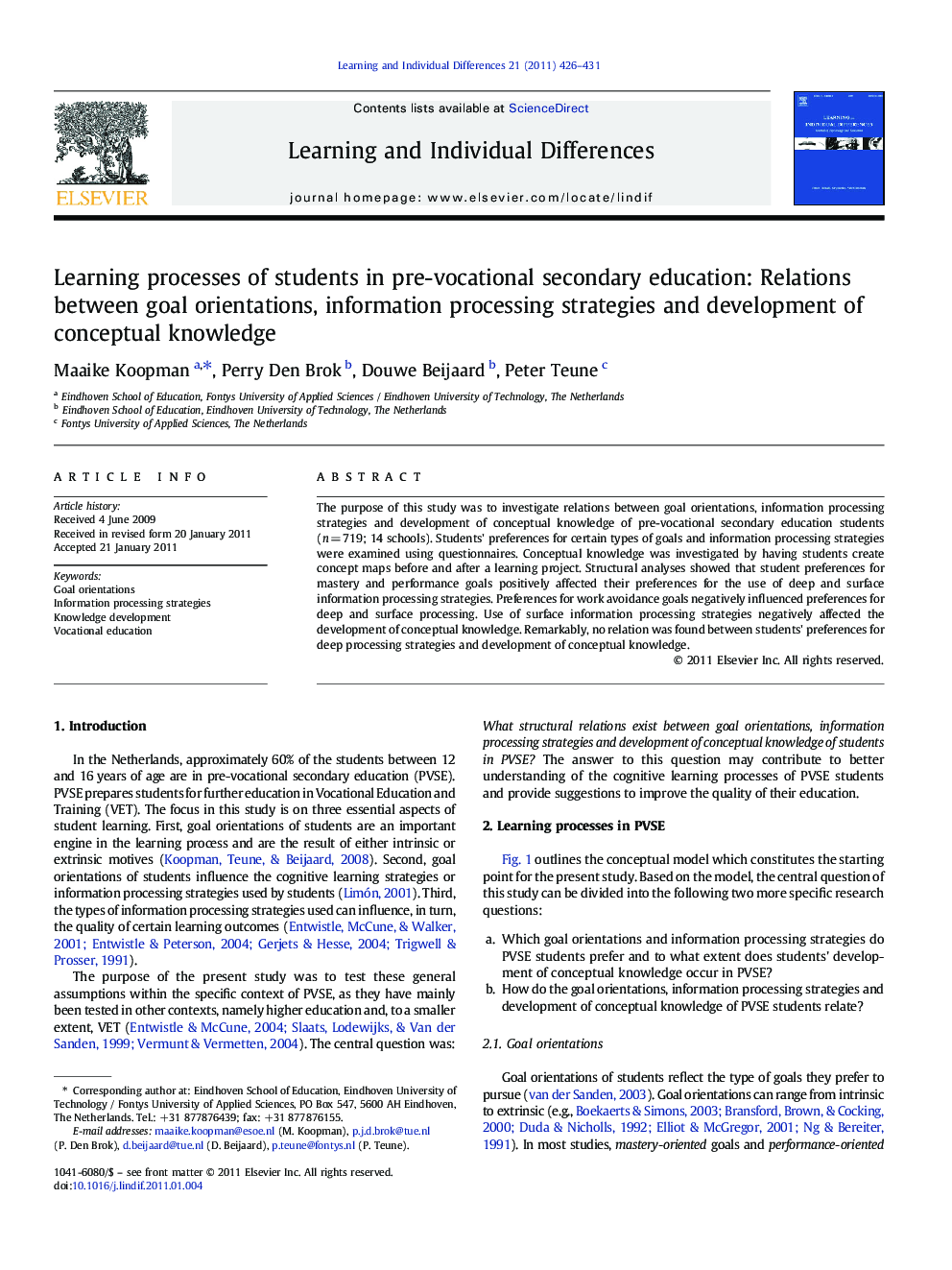| Article ID | Journal | Published Year | Pages | File Type |
|---|---|---|---|---|
| 364971 | Learning and Individual Differences | 2011 | 6 Pages |
The purpose of this study was to investigate relations between goal orientations, information processing strategies and development of conceptual knowledge of pre-vocational secondary education students (n = 719; 14 schools). Students' preferences for certain types of goals and information processing strategies were examined using questionnaires. Conceptual knowledge was investigated by having students create concept maps before and after a learning project. Structural analyses showed that student preferences for mastery and performance goals positively affected their preferences for the use of deep and surface information processing strategies. Preferences for work avoidance goals negatively influenced preferences for deep and surface processing. Use of surface information processing strategies negatively affected the development of conceptual knowledge. Remarkably, no relation was found between students' preferences for deep processing strategies and development of conceptual knowledge.
Research Highlights► Mastery and performance goals positively affect preferences for deep and surface processing in PVSE. ► Work avoidance goals negatively influence preferences for deep and surface processing. ► Use of surface processing strategies negatively affects development of conceptual knowledge. ► No relation was found between deep processing and development of conceptual knowledge.
